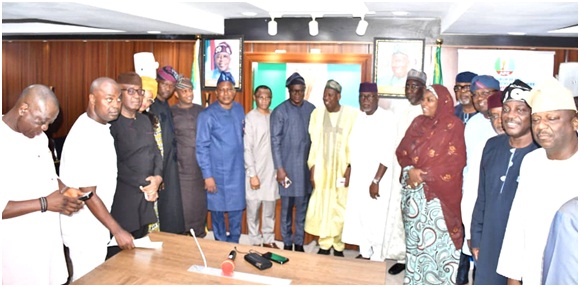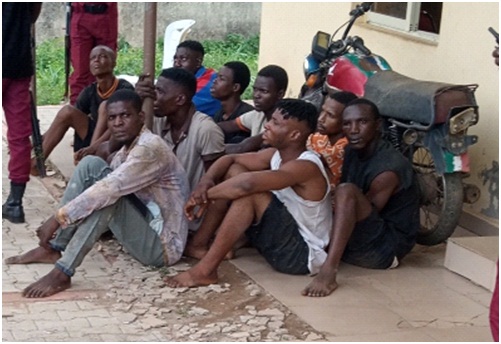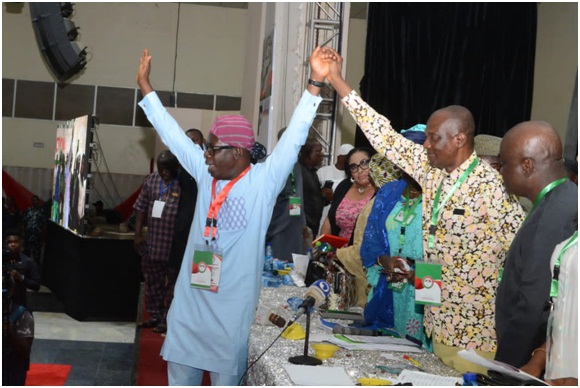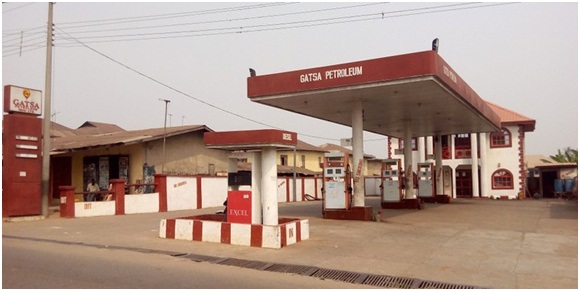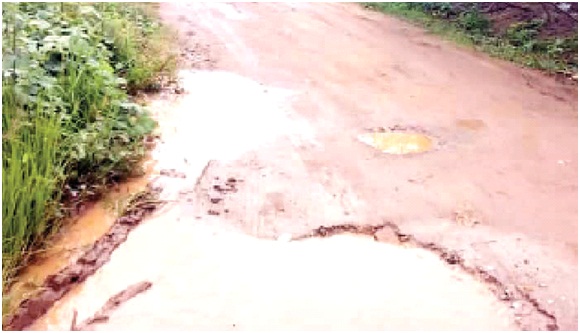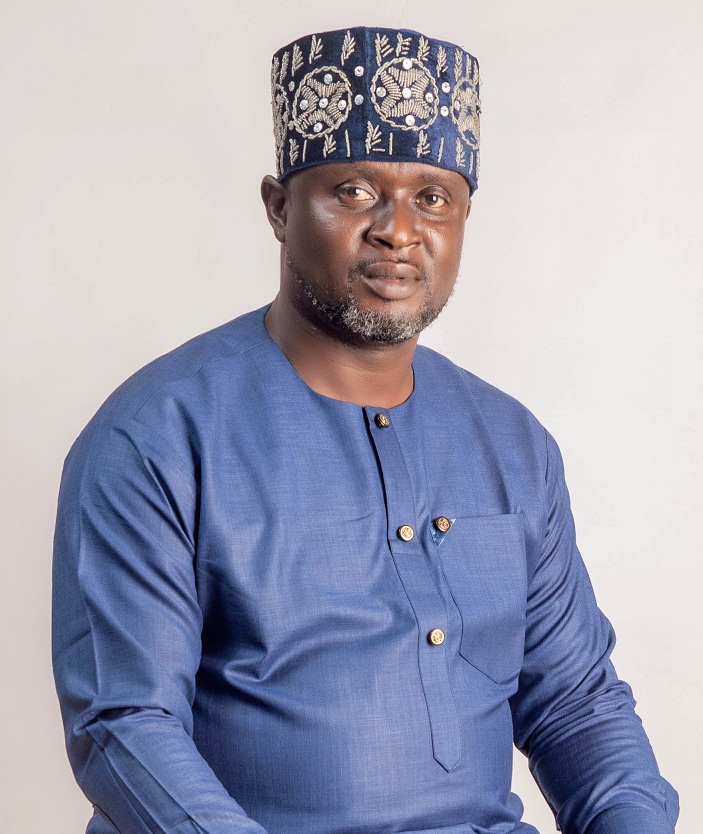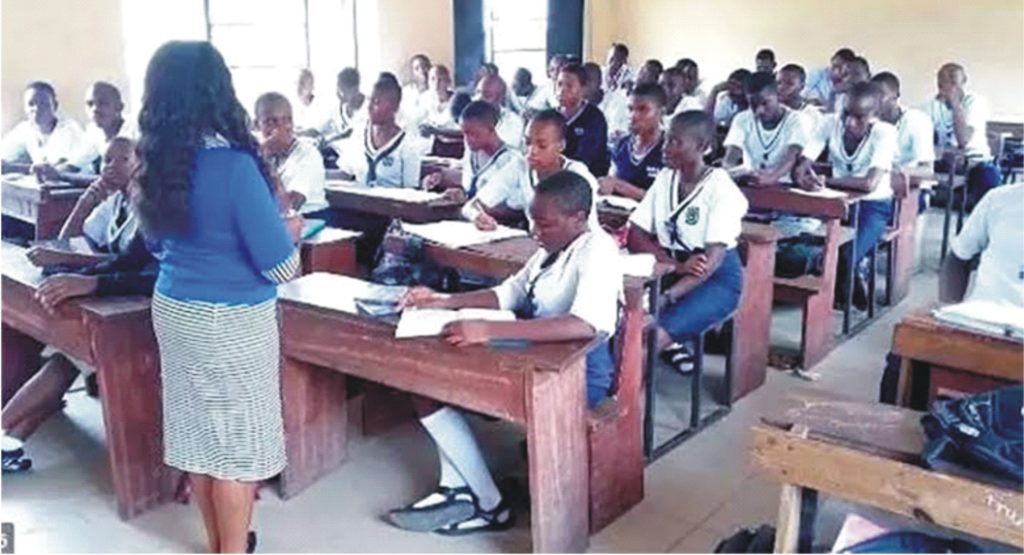Our experience with herdsmen can cause weeping -Cassava Growers President
The President, Cassava Growers Association of Nigeria, Prophet Segun Adewumi spoke on the adverse effects of the epileptic weather condition for agricultural practices in this interview with some Line Editors and the way out of the food crisis in the country. Excerpts:
Looking at the weather and a long drought at the peak of the rainy season this year, which was very detrimental to agricultural practice, how do you think this can be salvaged?
It has caused a lot of havoc. I know some crops have actually suffered, especially maize but that of cassava is terrible. We were just granted some facilities by CBN to commence another forty five thousand hectares on what they call five star; that is one farmer to five hectares. The money was released just at that point. At that time it was N11billion for farmers in six selected states. The entire budget for cassava farmers last year was N25 billion. We have some for one hectare farmers. That’s the general one but the five star was an innovation to empower the farmers the more, but unfortunately, as soon as this money was released, there was lack of rain that destabilised the process, but all the same we did our best. Towards the end of September when rain came back, we did the predicted that rain would continue, it also staggered. The weather situation has actually caused a lot of damage to cassava production this year.
The money released, was it withdrawn?
It wasn’t withdrawn. It’s with us. We will roll it over to next year. It was not just in cash but in cash and kind. Ondo State is one of the beneficiaries. Ondo State is expected to do five thousand for one thousand farmers. Right now, we have about two hundred hectares that have been planted in Ondo State in Ore, Ondo and Ile-Oluji. The real situation did not allow the dimension in which we were expected to do it. And for the fact that we need land, cultivable and tractorable land because the programme is for mechanised farming
What are the implications?
The implication is that it doesn’t stop the normal cassava that was available. It was only to be an additional. Right now we have a lot of industries cropping up for cassava programme and cassava is a big incentive. It can replace fossil oil. It can give us more money than we get from oil if it is well planned because there are lots of derivatives that have limitless domestic and export potential. These derivatives are also raw materials to numerous other utility products. So it can actually trigger industrial revolution.
What do you think is the solution to drought?
CBN has already started providing solution. Sometimes in August, they wrote to us that we should forward a proposal for irrigation/dry season farming. Because we wanted to forward something that is actually reasonable, we were unable to do enough within the time limit of two weeks that they gave us. But we are still preparing it. The ultimate is when we begin to do farming without being at the mercy of rain. It has started for crops such as rice and maize, mostly in the north, but now it has been extended to the south. We are still working on the farm. The problem with the south is that we don’t have contiguous land for mechanised farming. In the north, you can get 20,000 hectares on a stretch. There is no need for land development. Land development means land clearing and taking measures that will prevent erosion.
But in the south, scarcely will you find 200 hectares on a stretch. So we are trying to see how we can include the land clearing to convince them that look, you cannot just plant. If you are planting, it is just clearing the land for subsistence farming. Subsistence will be giving us ten tonnes per hectare against the expected yield of between 25 and 30 tonnes. So the cost of production will be high and it is not good for industrial. Right now, there are cassava industries springing up but for them to penetrate international and even local markets, they need to have affordable input of raw materials. For instance something like ethanol is not derived only from cassava. It is derived from so many other crops. For you now to use cassava to do it, the cost of the cassava must be affordable.
As the president, I am advocating cassava programme for food security and industrial use. The food security can be done by peasant farmers. We don’t want to price their cassava low, so that it will pay them. Then we have that of the industrial. The price will have to come less than that of the food security by subsistence farmers.
Take a look at Ile-Oluji and Ore, where cassava is being planted. Are you thinking of irrigation in those places?
If our proposal gets the approval of the CBN, we are irrigating all over the state. Ile-Oluji and Ore are good but we have better land in drier places. In Ore, they have coarse and tough soil. That one is good for peasant cassava farming, but one that is flat, such as Akoko, you can practise mechanised farming there. Cassava does not require too much of wet land.
In agriculture, it is the same way you feed animals that you also feed your plants. You determine what the plant will bring and that depends on what food (such as fertiliser and others) you feed the plant with.
With the convulsion of the weather, what are your forecasts for next year, in terms of food security?
We all know that there will be scarcity of food but the federal government, through the CBN is doing everything it can to mellow down the problem because they are pumping a lot of money into food production.
If you go to Kano, you will discover that most of our food are exported to neighbouring countries like Niger and Chad. Cassava used to be very available, especially in the north, because they don’t eat cassava in the north. They just dry it. This year, we have a very big market in Ondo State. There is a company called WeWood. WeWood started processing dry cassava. Many months ago we had 150 trailers loads of cassava waiting to discharge. Suddenly those neighbouring countries invaded the northern market. The cassava that WeWood was buying for N50,000 became N100,000. So WeWood could no longer get cassava like before. But we are planning to organize a meeting between the authorities of WeWood and cassava growers in the north, because their machine is designed mainly to mill dry cassava. They use very little of wet cassava. Since I am in charge of the entire nation, I decided to cause a collaboration between them and the northern cassava farmers, so that next year, they can get cassava at affordable price.
Many people are clamouring that the federal government should open the borders for food importation. What’s your reaction to this?
My reaction is in two-folds. If our cost of production and the quality of food we produce is ok, for example, cassava chips’ International price is $200 dollars when you take it to China but the cost of production, even before you ever take it to China, is $400 dollars. So how do you penetrate the world market? In the whole of the southern states, you scarcely find tractors. In the north, some State governments have over 1000 tractors. Irrigation is also on. Their agriculture there is supported by water resources. Our problem here is bush. So what we do here is subsistence farming. You can imagine the time when there was transport problem and food could not come from the north maybe six years ago, we were starving. I am a church man. We had an anniversary we had to postpone it. We couldn’t get condiments from Mile 12. So the north is actually feeding us.
Funny enough, what Western Region had that made it to excel during the Chief Obafemi Awolowo’s administration was agriculture. It’s time for our government to sit up and see how we can tackle agricultural problems.
Specifically, what do you want them to do?
They should call those of us who have some experience in agriculture to come and help. They have good intentions but need people with experience.
There is a saying that if the Mountain does not go to Mohammed, Mohammed would go to the mountain. Has your organization approached any of the south west governors? If yes, what was their response?
When our association was signing the agreement with the CBN, it was the governors of Ondo and Ekiti states that came to supervise it, with the deputy governors of Oyo, Osun and Ogun. Our government here has good intentions. For instance, what Ondo State government did with WeWood was exceptional. WeWood is serving the whole country, not just Ondo State. If Ondo State government decides to be supplying WeWood cassava, that will be 900 metric tonnes per day. It is enough to empower the whole of the farmers in Ondo State. Installing the machine is a great achievement. Now going ahead to use it to empower the peasant farmers is the next thing.
Apart from that, we can develop a huge programme that will help develop the youth in cassava production. If you give them five or 10 hectares each, because it is mechanised farming, the youth will be making a profit of N2.5 million per year. Now don’t get him stranded. Every year, as he succeeds, give him more. By the time he is through, he might be having 25 hectares and making over N5 million in a year. At that point, he can collaborate with his mates and they will have a processing factory that will reduce the cost of production. It’s just to set up the programme and they have started by creating the market.
The market is huge. We are importing over 90 percent of ethanol which is used in breweries and pharmaceutical companies. We need 17 million metric tonnes of starch. Cassava starch is the best for pharmaceutical companies all over the world. In Nigeria we produce less than five percent and even the one they bring to us is not good enough. For instance, genetically modified maize is what they process and bring to us sometimes. What they produce in Owo is one of the best in the world. Why can’t they replicate it in other centres and expand what they are doing there?
Apart from weather, another challenge for south west farmers is herdsmen. What has been your experience and how have you been able to cope?
The experience has been very bad and can cause weeping. Right now we are writing to the CBN, that within the last two months, herdsmen have destroyed over 200 hectares of what we have been able to do. Cassava is the only plant that is green throughout the year, because it depends on dew. That makes it a target for herdsmen, especially during dry season. In one of our farms in Ipao Ekiti, they destroyed 75 hectares. We are doing our best to beef up security. There is also fear. There was a time some of their cows were seized but fear that they would launch reprisal attacks on the host community made the cows to be returned.
Agriculture seems to be a way out for a state like Ondo depending on Abuja’s handout and to also solve developmental problems. Do you think Ondo State is actually towing that direction?
The first thing in agriculture is to create a market and Ondo State government has done that. What is needed is follow up so that instead of the market coming from outside, it will come from within the state. Ondo State does not have land for cassava alone but rice. The coastal land can be used for rice. It is also the largest producer of cocoa.
More cassava plants should be established across the three senatorial districts. Cassava is difficult to transport because it has 70 percent water. Therefore it is good to have the processing factory close to the site of production.
Can cattle ranching solve the herdsmen problem?
I believe that it could be a solution but I am not an expert in animal husbandry. However I believe anything that worked in other countries can also be replicated.
Hunger is staring us in the face. We want to ask, what are your predictions?
I happened to also be a pastor, not just a farmer. I know there’s always divine intervention, but that is not to say we should not plan. Government and CBN are doing their best to ensure availability of food. I don’t think there will be any problem. Finance is no longer a problem for farmers in Nigeria. We should give the CBN kudos for this.

